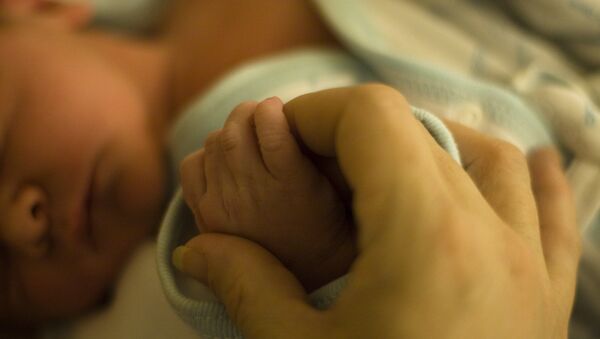The number of new immigrants is taxing health care resources, as many foreign mothers require translation services and engender other bureaucratic hurdles, some hospital staff say.
"Of course we have seen an increase in the number of pregnant refugee women," Wolfgang Henrich, director of obstetrics at Charite Hospital in Berlin, told German international broadcaster Deutsche Welle. "We are mostly facing problems caused by the language barrier. We have to make sure that interpreters can be booked or find someone in the hospital who can do the job."
The hospital has been trying to hire healthcare assistants who speak foreign languages, the doctor noted, and Charite now has at least one Syrian physician at each of its four branches in Berlin.
According to the German Federal Statistics office, 738,000 children were born in the country in 2015, with 590,000 born to German mothers and 148,000 to mothers with other citizenship. This is a 3-percent increase from the years between 1996 and 2014, when their share hovered between 17 and 18 percent.
According to official statistics, by far the greatest number of babies with foreign mothers – over 48,000 – were born to mothers of “other European nations,” and between 2014 and 2015, that number increased by about 9,000. Following that category were children born to mothers from Asia (25,000), then Turkey (21,500) and Africa, 13,500.
Deutsche Welle reports that 4,800 Syrian women gave birth in Germany in 2015, compared with 2,300 in 2014.
Charite handles over 5,000 births per year.
"Interpreter costs amounted to several hundred thousands of euros this year, because of foreign women who simply showed up," Henrich said. "I'm not only talking about Syrian women, but also about those from Iraq, Iran, Afghanistan or different African countries. In such cases, we need to provide interpreters on short notice. Financing these services is an unsolved problem."
Patients with medical emergencies will never be turned down, Volker Müller, a laboratory physician in Kassel, told Deutsche Welle, but that means hospitals face the problem of figuring out how to pay for interpretation services, and sorting out who must pay treatment costs.
Health insurance is mandatory in Germany for all expats, and the EU and Germany have mechanisms intended to cover EU citizens during short and longer-term stays abroad. But refugee medical emergencies are covered by overlapping entities that step in at different intervals. Within the first 15 months of an asylum request, expenses are covered by local authorities. If processing the request takes longer than 15 months, asylum seekers are entitled to the same healthcare as German citizens, according to Deutsche Welle.
On average in the second quarter of 2016, the processing time for an asylum claim in Germany was 7.3 months.
Germany’s official population count in 2015 is 82.2 million. The country saw its largest-ever wave of immigration in 2015, with a net 1.14 million foreign nationals arriving in the country to stay. The figure is a 49-percent increase from 2014, which had a net migration of 577,000 people. Official German statistics report that nearly 8.2 million foreign citizens registered in the Central Register of Foreigners at the end of 2014, the most recorded since the office was established in 1967.



